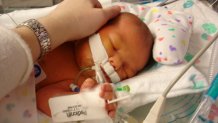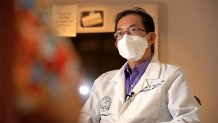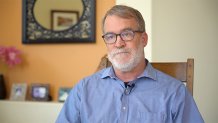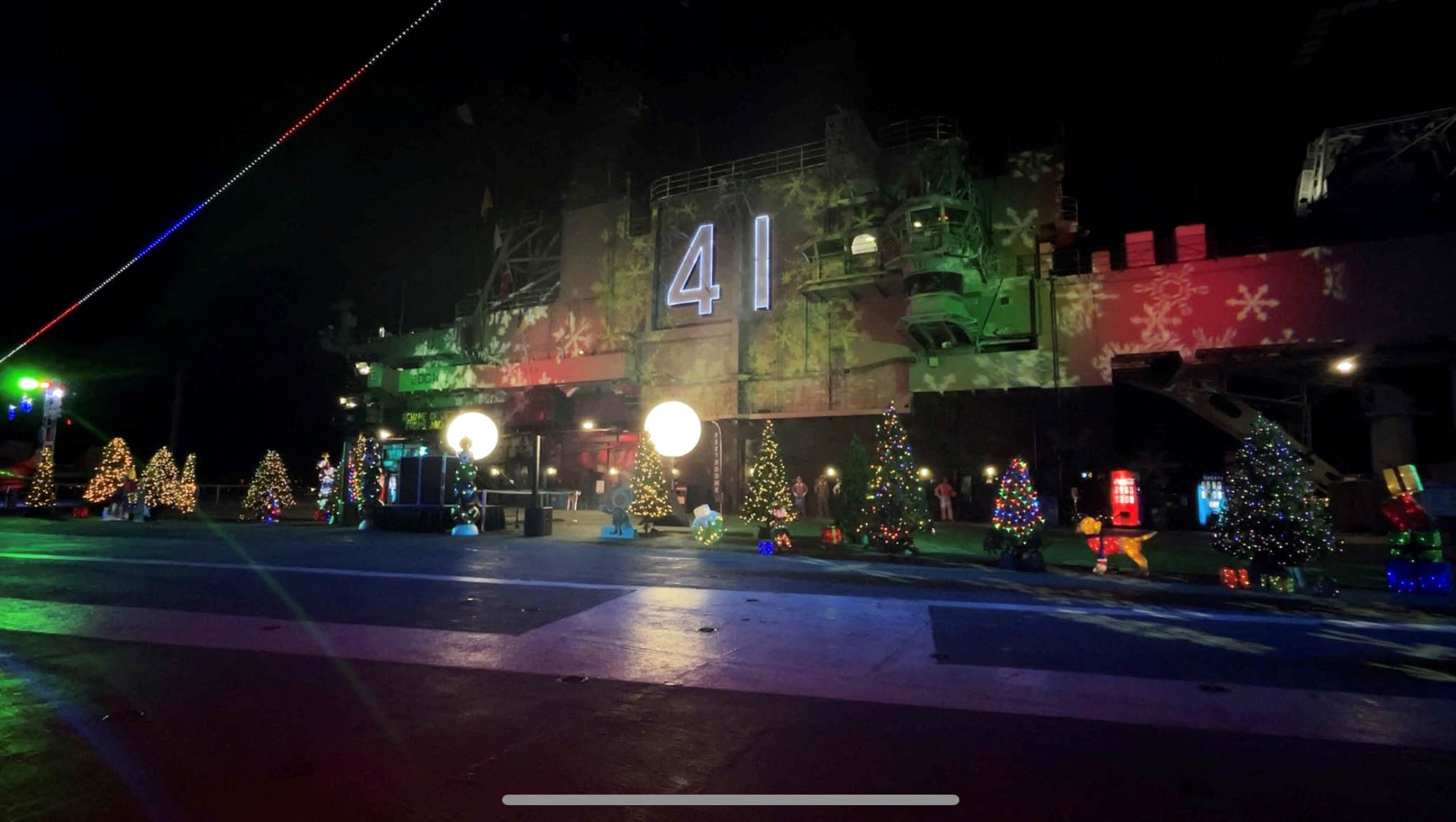“We have just been trying to get through the pandemic as best as we can,” said Erin Kirschner, a Carmel Valley resident and mother.
Kirschner’s son Jonah, who is 13 years old, was diagnosed with congenital cystic adenomatoid malformation before he was born.
“When I was 19-weeks pregnant, during an ultrasound, they identified a mass in his left lung,” Kirschner said.
The finding resulted in Jonah having 80% of his left lung removed when he was just one day old.
Get top local stories in San Diego delivered to you every morning. >Sign up for NBC San Diego's News Headlines newsletter.

“He's had, you know, reduced breathing capabilities since then,” Kirschner said. “Whenever he gets a cold, even just a minor cold, it just lingers in his chest, and he has a really hard time.“
The entire family is now vaccinated against the coronavirus, but they worry that Jonah won’t be fully protected until everyone around him gets vaccinated as well.
Local
“I mean, a cold for him is a big deal," Kirschner said. "The flu would most likely require hospitalization and COVID. I can't even think about it."
Kirschner and others have concerns that people may try to misuse religious exemptions to avoid employer and government vaccine mandates, exposing loved ones to the virus.
Coronavirus Vaccine Medical Exemptions
Dr. William Tseng from Kaiser Permanente in San Diego said there are legitimate medical reasons for skipping the vaccine.
“If you are a cancer patient, sometimes you are not to receive vaccines — people who are allergic to any component of the vaccine,” Tseng said.

Tseng told NBC 7 that he and other San Diego County physicians are being asked to sign off on religious exemptions as well.
“Your physicians cannot be giving out religious exemptions,” Tseng said he reminds people.
The Awaken Church, which has several locations around San Diego County, is offering religious exemptions to its members, however.
The church has been involved in COVID controversies before, criticized for holding indoor services against public health orders last year and ignoring masking rules.
NBC 7 Investigates obtained a copy of the religious-exemption letter that Awaken is offering to its members. It explains in great detail why they are opposed to the vaccine.
The first reason cites a Bible verse that says the human body is “a temple of the Holy Spirit.” The letter states, “We are commanded to take good care of it, not to defile it, and certainly not introduce something into it.” It goes on to say that taking “this vaccine actually makes modifications to the body.… This, in essence, would be trying to improve or alter what God made perfectly ... which is clearly a sinful practice.”
The most common argument against being vaccinated against the coronavirus is that aborted fetal cell lines were used in the production process. The Awaken Church lists this as the “most notably significant reason why the acceptance of these vaccines would be considered sinful.”
Johnson & Johnson did use a replicated fetal cell line in the production of its vaccine, and Pfizer and Moderna used them to test the effectiveness of their vaccines. But these cell lines were isolated from two fetuses from the Netherlands in 1973 and 1985 and then replicated over decades, and are commonly used to create and test other medications as well. They do not contain any tissue from a fetus.
NBC 7 Investigates reached out to the Awaken Church by phone and e-mail multiple times to ask about their religious exemption letters. Church officials did not respond, however.
Religious-Studies Expert Weighs In
John Evans is a professor of sociology and religious studies at UCSD.
“Even the pope says that is a more extreme condition than what is actually necessary,” Evans told NBC 7.

Evans said the threshold for religious exemptions comes down to proving whether the person attempting to obtain one has “sincerely held beliefs” against getting vaccinated on religious grounds. They may even have to show a track record of opposition to receive an exemption, which isn't easy.
Roman Catholic and other Christian, Jewish and Muslim leaders have advised followers to get the shots. Just last month, Bishop Robert McElory issued a letter to San Diego priests asking them to decline any requests for religious exemptions to vaccines.
“There are no major religions in the United States that are officially opposed to the COVID vaccine,” Evans said. “If anything, the primary message from religions in America is that you have a moral obligation to take the vaccine through the idea of ‘love of neighbor.’ ”
Evans said he expects legal battles over religious exemptions. He doubts they will break new legal ground, however.
“The issues here have been around for a very long time," Evans said. "The most notable example was during the Vietnam and Korean [wars], people claiming religious exemptions from the draft.”
In the meantime, Kirschner is pleading with those who haven’t gotten vaccinated yet to reconsider, for her son's sake and others like him. She and her family continue to wear masks, isolate and plan to get a booster shot when available.
“I still can't bring myself to think that there is a religious reason you wouldn't get vaccinated or even consider the possibility of getting vaccinated," Kirschner said. "Do it for yourself, do it for your family, do it for those around you.”



